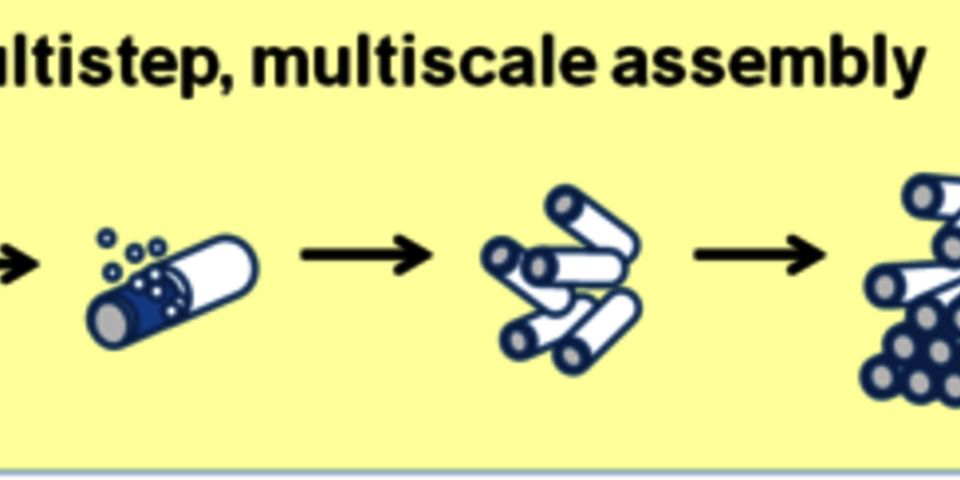Money for innovative ‘aquarium technology’ in microscopy
TU/e is going to cooperate with foreign universities and companies to investigate how porous materials can be built up by organizing pre-formed building blocks, just like the process taking place in many natural materials. Once more knowledge has been gathered about this process, these materials can be utilized for societal challenges such as worldwide clean drinking water, alternatives to fossil fuels and pushing back global warming.
The build-up of natural materials, such as wood, shells and bones, may be compared to a Lego building that is logically constructed from loose building blocks: the Lego bricks. In nature, molecules jointly form those Lego bricks, which are subsequently stacked to form a material with highly specific properties.
In the MULTIMAT project this special process is studied with liquid-electron microscopy, a new microscopy technology which uses a kind of aquarium in the microscope. In this aquarium, liquids can be studied in real-time on a nanometer scale, so that you can follow each step in the build-up of the small building blocks and subsequently their organization into larger structures.
It is expected that the knowledge about the way in which sophisticated materials can be built up by this 'Multiscale Material Assemblage' will give the researchers opportunities for a number of technological applications. These materials, which were inspired by nature, can for instance be used as salt filters for converting seawater into drinking water, or may act as catalysts in alternative fuel cells. The researchers also envisage possibilities for pushing back global warming by reducing heating costs thanks to improved insulation materials or by capturing CO2 by means of affordable methods.
The MULTIMAT research project is rendered financially possible through a European subsidy of 3.4 million euro within the Marie Skłodowska Curie ITN program and a Netherlands subsidy of 400,000 euro within the 3TU research center for High-Tech Materials. TU/e professor Nico Sommerdijk will be coordinating the project as of March 1.
Source: Department of Chemical Engineering and Chemistry


Discussion